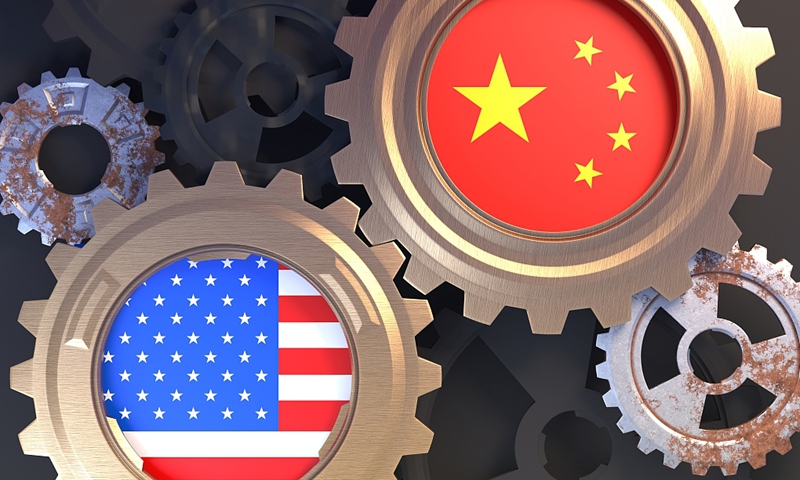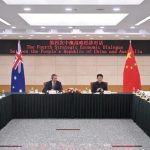US smearing China on data security 'absurd'; Washington urged to listen to market concerns instead of blind suppression

China's Foreign Ministry on Thursday urged the US to stop slandering and smearing China on data security, and maintain an open, fair and non-discriminatory business environment, after the Biden administration on Wednesday unveiled an executive order barring genomic data transfers to China over the repeatedly cited claim of national security.
Chinese officials and experts noted that the US approach lacks sufficient evidence to support it and runs counter to the principles of international trade and cooperation. The US government should listen to the voices of enterprises and seek ways to cooperate and address problems through dialogue and consultation instead of groundless suppression, they said.
According to Reuters, the order will curb bulk transfers of Americans' geo-location, biometric, health and financial information to specific "countries of concern." The directive appeared to zero in on Chinese gene companies like BGI, barring the transfer of any volume of genomic data to countries of concern, according to the report.
In response, Mao Ning, spokesperson of the Foreign Ministry, noted that the US overstretches the concept of national security, falsely accuses China of purchasing American's personal and sensitive data for malicious activities, and prevents the transfer of data to so-called "countries of concern" including China.
"These are discriminatory practices clearly targeted at certain countries. China firmly rejects these measures," she said.
The Chinese government has always placed great importance on the protection of data privacy and security, and has never, and will never, ask its enterprises or individuals to collect or provide data information and intelligence located in foreign countries for the Chinese government in a manner that violates local laws, Mao said.
China has taken the lead in proposing the Global Initiative on Data Security, and if the US was truly concerned about data security, it could publicly support China's initiative or make a similar commitment, Mao noted.
"We asked the US to stop slandering and smearing China, effectively maintain an open, fair and non-discriminatory business environment, and work with all parties to formulate universal data security rules, in order to promote the orderly and free flow of global data," said Mao.
"The US action is another fresh example of its suppression of Chinese enterprises on the ground of biotechnology security. However, the US should realize that zero-sum games are no longer compatible with the current trend of economic globalization," Wang Peng, an associate researcher at the Beijing Academy of Social Sciences, told the Global Times on Thursday.
In the long run, this kind of suppression will inspire China and other countries to develop biotechnology more independently and reduce foreign dependence, Wang noted, adding that as China and the US are the world's largest economies, cooperation between them is vital to the stability and development of the global economy.
The American Chamber of Commerce in China recently released a report showing that the financial performance of US companies in China, their expectations of China's development prospects and their intentions to invest in China all improved in 2023, and most of the surveyed companies will maintain their presence in China.
He Yadong, spokesperson of China's Ministry of Commerce, said on Thursday that the latest report shows that US-funded enterprises recognize that China's economy is picking up and the business environment continues to improve, and that multinational corporations have confidence in investing and cultivating in China. This is another example showing that China is still a top destination for global investment.
"For four consecutive years, US firms in China have regarded 'tensions in the US-China relationship' as the biggest business challenge, reflecting the business community's keen expectation for the stable development of bilateral ties," He said.
China stands ready to work with the US to give full play to the role of the multi-level communication mechanism of the two countries' commerce ministries, in a bid to push forward mutually beneficial cooperation, effectively control differences and create a favorable environment for the business communities of the two countries, He said.
There are rising signs of improved engagement between the Chinese and US business communities, evidenced by the ongoing visit by the delegation led by the US Chamber of Commerce to China.
During her meeting with Chinese Premier Li Qiang said on Wednesday,President and CEO of the Chamber Suzanne P. Clark said that the US-China relationship is extremely important and "decoupling" is not a viable option. The chamber is willing to act as a bridge to deepen US-China economic and trade relations and mutually beneficial cooperation, and promote the steady development of US-China relations.
"Enterprises are the mainstay of the market economy, and they have a keener sense of market demand, cooperation opportunities and competitive dynamics. The US government should listen to the voices of enterprises, understand their concerns and needs, and formulate more reasonable and pragmatic economic and trade policies," Wang noted.
Differences and competition between China and the US in the fields of economy, trade, science and technology are inevitable, but both sides should seek ways to cooperate and solve problems through dialogue and consultation, the expert said.



